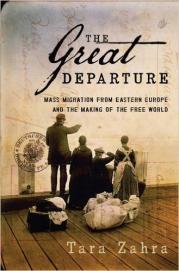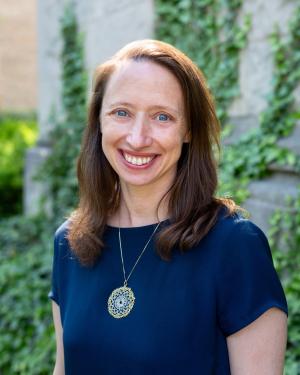
University of Michigan, PhD '05
BIOGRAPHY
Tara Zahra's research focuses on the transnational history of modern Europe, migration, the family, nationalism, and humanitarianism. Her latest book, Against the World: Anti-Globalism and Mass Politics Between the World Wars will be published by W.W. Norton Press in 2023. With Pieter Judson, she is currently working on a history of the First World War in the Habsburg Empire. Zahra is also the author of The Great Departure: Mass Migration and the Making of the Free World (Norton, 2016) and, with Leora Auslander, Objects of War: The Material Culture of Conflict and Displacement (Cornell, 2018). Her previous books include The Lost Children: Reconstructing Europe's Families after World War II (Harvard, 2011) and Kidnapped Souls: National Indifference and the Battle for Children in the Bohemian Lands (Cornell, 2008).
Graduate Advising
I welcome applications from graduate students interested in Central European history (including Habsburg, East European, and German history) in the nineteenth and twentieth centuries, as well as European international history and transnational history. Some of my current and former PhD students have worked on the history of gender and sexuality in late Imperial Vienna; migration and the family in postwar West Germany; the body in late Socialist Czechoslovakia; Jewish culture in postwar Czechoslovakia and Poland, Roma in postwar Hungary; colonialism and empire in Poland and Germany; and masculinity and coal mining in Socialist Czechoslovakia.
Recent Course Offerings
Undergraduate
-
Writing Family History (junior colloquium)
-
Human Rights in World Civilization
-
Twentieth-Century Europe
-
History of Human Rights (in Vienna)
-
East Central Europe in the Twentieth Century
-
Nazism (junior colloquium)
-
European Civilization I & II
-
Gender & Sexuality in World Civilization
-
Migration and Displacement in Twentieth-Century Europe
Graduate
-
History and Anthropology of the Present (with Susan Gal)
-
Seminar: Globalization and Its Discontents (with Jon Levy)
-
Transnational Europe: Twentieth Century
-
Nations & Empires (with Susan Gal)
-
Nationalism in East Central Europe
-
Unsettled Europe: Migration and Displacement in Modern Europe
-
Gender and Sexuality in Modern Europe (with Leora Auslander)
-
Historiography (with Emily Osborn)
-
Migration and Material Culture in Modern Europe (with Leora Auslander)
University and Departmental Service
-
Roman Family Director, Neubauer Collegium for Culture and Society
-
Faculty Sponsor of Transnational Approaches to Modern Europe Workshop
-
Executive Board, Center for Russian, East European, and Eurasian Studies
-
Faculty Affiliate, Center for Study of Gender and Sexuality
-
Editorial Board, Past & Present
Recent Research / Recent Publications
Against the World: Anti-Globalism and Mass Politics Between the World Wars. New York: W.W. Norton, 2023.
Coauthored with Pieter Judson, The Great War and the Transformation of Habsburg Central Europe. Oxford & New York: Oxford University Press, in progress.
Coauthored with Leora Auslander. Objects of War: The Material Culture of Conflict and Displacement. Ithaca, NY: Cornell University Press, 2018.
The Great Departure: Mass Migration from Eastern Europe and the Making of the Free World. New York: W.W. Norton, 2016.
- Review by Benjamin Cunningham in the Los Angeles Review of Books (May 24, 2016)
- Review by The Economist (April 30, 2016)
- Interview with Adam Morgan for the Chicago Review of Books (April 7, 2016)
- Review by Julie M. Klein in the Chicago Tribune (March 17, 2016)
The Lost Children: Reconstructing Europe's Families after World War II. Cambridge, MA: Harvard University Press, 2011.
- George Louis Beer Prize, American Historical Association, 2012
- Radomir Luza Prize, Austrian Cultural Forum, 2012
Kidnapped Souls: National Indifference and the Battle for Children in the Bohemian Lands, 1900–1948. Ithaca, NY: Cornell University Press, 2008; paperback, 2011.
- Book Prize, Czechoslovak Studies Association, 2009
- Barbara Jelavich Book Prize, American Association for the Advancement of Slavic Studies, 2009
- Hans Rosenberg Book Prize, Conference Group for Central European History, 2009.
- Book Prize, Austrian Cultural Forum, 2008-2009
- Laura Shannon Prize, Nanovic Institute, 2008–2009
- “Migration, Mobility, and the Making of a Global Europe,” Contemporary European History 31 (February 2022), 142-54.
- “Against the World: The Collapse of Empire and the Deglobalization of Interwar Austria,” Austrian History Yearbook 52 (2021)
- “Fin d’empire et genre de la déglobalisation,” Clio. Femmes, genre, histoire 53, 2021.
- "'Condemned to Rootlessness and Unable to Budge': Roma, Migration Panics, and Internment in the Habsburg Empire." American Historical Review 122, no. 3 (Jun. 2017).
- "Europe's Shifting Borders." Foreign Affairs (Feb. 11, 2017).
- "Travel Agents on Trial: Policing Mobility in Late Imperial Austria." Past & Present 223 (May 2014): 161–93.
- "Forum: Habsburg History." German History 31 (Jun. 2013): 225–38.
- With Pieter M. Judson. "Introduction." Austrian History Yearbook 43 (2012): 21–27.
- [Papers from the May 2008 symposium, "Indiference to Nation in Habsburg Central Europe."]
- "Going West." East European Politics and Societies 25 (Nov. 2011): 785–91.
- "'The Psychological Marshall Plan': Displacement, Gender, and Human Rights after World War II." Central European History 44 (Mar. 2011): 37–62.
- "Enfants et purification ethnique dans la Tchécoslovaquie d'après-guerre." Annales. Histoire, Sciences Sociales 66 (Apr.–Jun. 2011).
- "'A Human Treasure': Europe's Displaced Children Between Nationalism and Internationalism." Postwar Reconstruction in Europe: International Perspectives 1945–1949 Past & Present Supplement 6 (2011): 210.
- "Imagined Non-Communities: National Indifference as a Category of Analysis." Slavic Review 69 (Spr. 2010): 93–119.
- "'Prisoners of the Postwar': Expellees, Refugees, and Jews in Postwar Austria." Austrian History Yearbook 41 (2010): 191–215.
- "Lost Children: Displacement, Family, and Nation in Postwar Europe." Journal of Modern History 81 (Mar. 2009), 45–86.
- "The Minority Problem: National Classification in the French and Czechoslovak Borderlands." Contemporary European History 17 (May 2008): 137–165.
- "'Each Nation Only Cares for Its Own': Empire, Nation, and Child Welfare Activism in the Bohemian Lands, 1900–1918." American Historical Review 111 (Dec. 2006): 1378–1402.
- "Looking East: East Central European 'Borderlands' in German History and Historiography." History Compass 3, no. 1 (2005): 1–23.
- "Reclaiming Children for the Nation: Germanization, National Ascription, and Democracy in the Bohemian Lands, 1900–1945." Central European History 37 (Dec. 2004): 499–541.
- Writes an opinion piece "Globalization Is Collapsing. Brace Yourselves" for the New York Times (2025)
- Reviews of Against the World: Anti-Globalism and Mass Politics Between the World Wars in The New York Times and The Wall Street Journal.
- Receives Guggenheim Fellowship (2021)
- Delivers the Center for Austrian Studies' 36th Annual Kann Memorial Lecture (2020)
- "The Ugly U.S. History of Separating Famiies Goes Back Way Beyond Trump" in the Daily Beast
- Elected to the American Academy of Arts & Sciences
- Discusses "Europe's Shifting Borders" in Foreign Affairs
- Reviews of The Great Departure in the Chicago Tribune, the Economist, and the Los Angeles Review of Books
- Publishes The Great Departure: Mass Migration from Eastern Europe and the Making of the Free World (Norton, 2016)
- Writes an opinion piece, "America, the Not So Promised Land," for the New York Times
- Coorganizes "People & Things on the Move" conference, Neubauer Collegium
- Coorganizes "Human Trafficking, Labor Migration, and Migration Control in Comparative Historical Perspective" conference, Pozen Family Center for Human Rights
- Awarded 2014 MacArthur Fellowship
- Discusses "Humanitarianism and Displaced Children in Twentieth-Century Europe" [video, 66 minutes]
- Delivers lecture at Shannon Prize Award ceremony [video, 85 minutes]
- Writes on topics related to The Lost Children:Reconstructing Europe’s Families After World War II on The Nation

New York University, PhD '15
BIOGRAPHY
I am a scholar of the modern Middle East specializing in the historical geography of global capitalism, comparative studies of colonialism and empire, and environmental history.
Over the past decade of research and teaching, my overarching concern has been to address, simultaneously, two related challenges. First, as a historian of the postcolonial world, I am to pursue and develop new approaches to the critical study of global capitalism that demonstrate the continued relevance of insights and concerns that have animated the long and varied tradition of political economy. But second, drawing directly on the critiques of Eurocentrism and economic determinism that have been so central to the project of postcolonial studies, I seed to produce and teach historical narratives that unsettle the longstanding tendency to treat the “rest of the world” as mere passive recipients of ideas and processes that originate elsewhere.
My first book project, Egypt’s Occupation: Colonial Economism and the Crises of Capitalism (Stanford University Press, 2020) explores both the political economy of the Egyptian state and the role of political-economic thought in the struggle over British rule in Egypt following the occupation of 1882. For decades, Egypt has stood as a paradigmatic case of peripheral development in the capitalist world economy. From this perspective, the advent of Britain’s “veiled protectorate” after 1882 simply reinforced Egypt’s prior status as a vast plantation for the production of raw cotton and a market for industrial goods from Europe. All but obscured in such accounts is Egypt’s emergence as a key site for investment and experimentation in the worldwide financial expansion that characterized global capitalism at the close of the nineteenth century. Egypt’s Occupation tells the story of that financial boom and the crisis that followed. And the book goes on to demonstrate that this long-neglected process of financialization was of central importance to the politics of British rule. Across the four decades from the invasion of 1882 to Britain’s unilateral declaration of Egyptian independence in 1922, Egypt’s Occupation traces the complex career of the discourse I refer to as “colonial economism.” From the outset, British officials held that Egyptians, as racially distinctive human subjects, were capable of no more and no less than a bare recognition of their immediate material interests; the legitimacy of imperial rule would, accordingly, vary as a direct function of the “economic development” that British reform could deliver. In grappling with a discourse of colonial improvement that appeared to be succeeding on its own terms, Egypt’s early nationalist thinkers elaborated their own alternative accounts of the ephemeral and uneven qualities of financialization. They thereby articulated a range of rigorous, if fragmentary, critiques of the political and economic theories upon which the British had built their project of rule. In time, these efforts to find grounds for national sovereignty beyond the mere calculus of economic gain and lost shaped both the conceptual apparatus and the political strategies through which a growing nationalist movement sought to bring the occupation to an end.
Over the past few years, I have begun work on a new project, tentatively entitled Tilted Waters: The World the Suez Canal Made. Spanning more than two centuries, from the earliest European proposals to excavate a channel through the Isthmus of Suez to the Egyptian military regime’s current efforts to remake the waterway and its environs into a major processing hub and free trade zone, the book will explore the many and shifting roles that the Suez Canal has played in the production of global inequalities.
Before joining the Department of History, I was assistant professor of historical studies at The New School in New York City. I have also held fellowships at Yale University’s Program in Agrarian Studies and George Washington University’s Institute for Middle East Studies.
Recent Research / Recent Publications
-
“Peaceful Wars and Unlikely Unions: The Azhar Strike of 1909 and the Political of Comparison in Egypt,” Comparative Studies of Society and History (2022): 1-26.
-
Coauthored with Ahmad Shokr, “Capitalism in Egypt, Not Egyptian Capitalism,” in Joel Beinin, Bassam Haddad, and Sherene Seikaly, eds., A Critical Political Economy of the Middle East and North Africa (Stanford: Stanford University Press, 2020): pp. 123-142.
-
Egypt’s Occupation: Colonial Economism and the Crises of Capitalism (Stanford: Stanford University Press, 2020).
-
Coauthored with Ahmad Shokr, "Finding Value in Empire of Cotton," Critical Historical Studies Vol. 4, No. 1 (Spring 2017): 107-136.
-
"Review: John Chalcraft, Popular Politics in the Making of the Modern Middle East (Cambridge: Cambridge University Press, 2016)," Middle East Journal Volume 70, No. 4 (Autumn 2016): 688-691.
-
“Boom, Bugs, Bust: Egypt's Ecology of Interest, 1882-1914,” Antipode (February 2016).
-
“Review Essay: A New Materialism? Globalization and Technology in the Age of Empire,” International Journal of Middle East Studies Vol. 47, No. 2 (April 2015): 369-381.
-
“The Scales of Public Utility: Agricultural Roads and State Space in the Era of the British Occupation,” in Marilyn Booth and Anthony Gorman, eds., The Long 1890s in Egypt (Edinburgh: University of Edinburgh Press, 2014): 57-86.
-
“Review: Raouf Abbas & Assem El-Dessouky, The Large Landowning Class and the Peasantry in Egypt, 1837-1952, Amer Mohsen with Mona Zirki trans., (Syracuse: Syracuse University Press, 2012)," Economic History Review, 66, 2 (2013): 676-8.
-
“Review Essay: The Invisible State,” Arab Studies Journal Vol. XX, No. 1(Spring 2012): 236-245
-
“Review: Michael Ezekiel Gasper, The Power of Representation: Publics, Peasants, and Islam in Egypt (2009),” Arab Studies Journal Vol. XVIII, No. 1 (Spring 2010): 374-8.
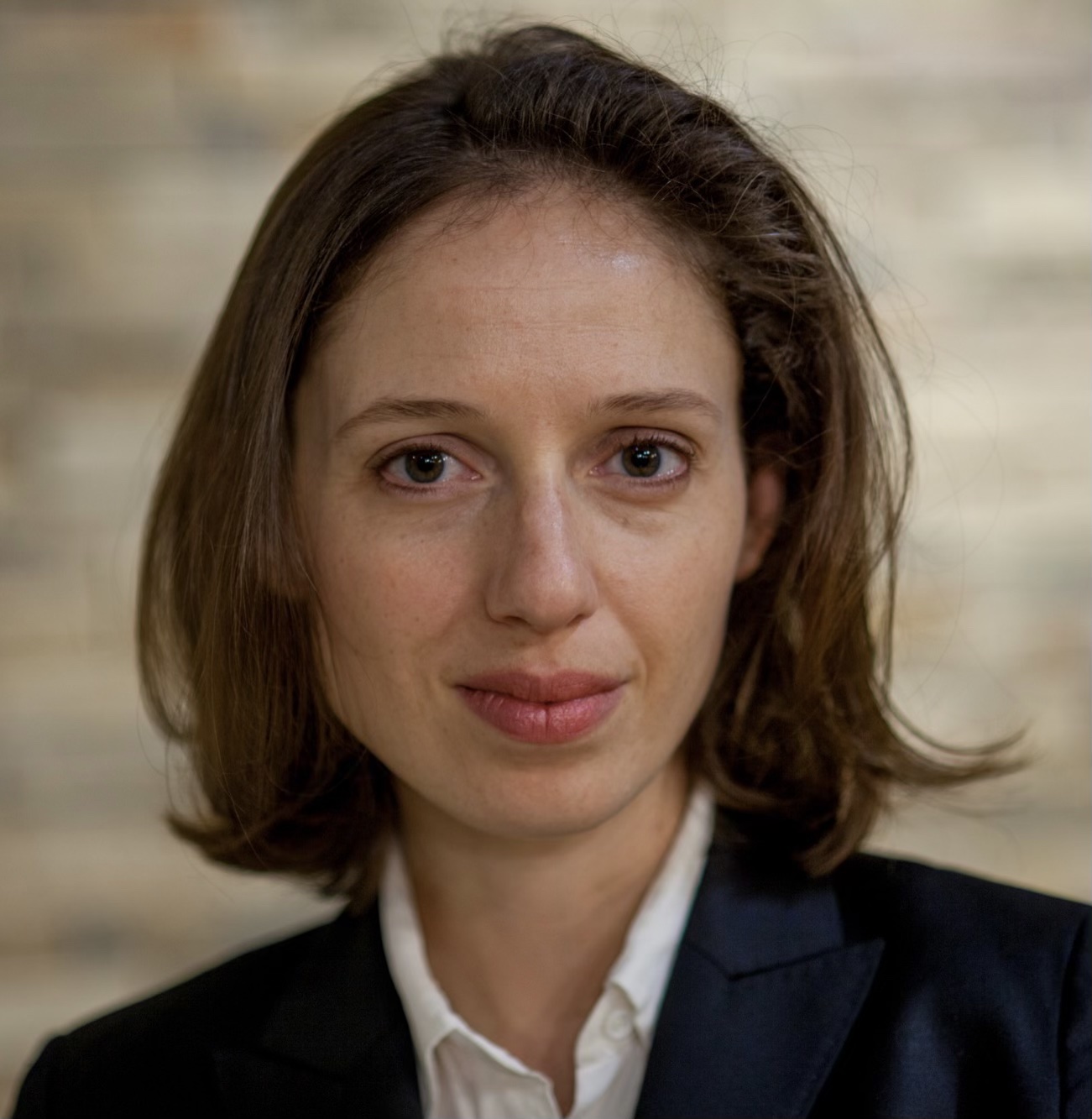
PhD 2017 (history) University of Pennsylvania
AM 2009 (Middle Eastern, South Asian, and African studies) Columbia University
RESEARCH INTERESTS
African history; Middle Eastern history; imperialism; global nineteenth century; history of death; African diaspora; race and slavery; visual and material culture
BIOGRAPHY
Dr. K.J. Hickerson (she/her) is cultural and political historian of the nineteenth and early twentieth century Nile Valley. Her research stands at the nexus between African history, the study of the African diaspora in the Middle East, and the study of imperialism. Dr. Hickerson’s book manuscript-in-progress, Mortal Struggles: Death and Empire in the Nile Valley, examines cultural practices surrounding death in Sudan throughout the era of Ottoman-Egyptian colonialism, the independent state known as the Mahdiyya, and the early years of the co-dominion of Sudan by Egypt and Great Britain. Her other research and writings address the politics of photography, art, fashion, and medicine in the Nile Valley and beyond.
Before coming to UChicago, Dr. Hickerson was a Postdoctoral Fellow at the Middle East Center at the University of Pennsylvania. She was the Sir William Luce Fellow at Durham University and has received fellowships and grants from the Huntington Library, the Boston Athenæum, the British Academy, the African Studies Association, among others and her writings have appeared in Durham Middle East Papers, Journal of Northeast African Studies; Encyclopaedia of Islam, 3rd edition; and the Sudan Studies Bulletin.
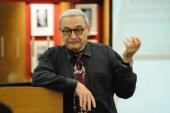
Prof. Hevia has retired and no longer directs BA theses or accepts new graduate students.
University of Chicago, PhD '86
BIOGRAPHY
James Hevia's research has focused on empire and imperialism in eastern and central Asia. Primarily dealing with the British Empire in India and southeast Asia and the Qing empire in China, the specific concerns have been with the causes and justifications for conflict; how empire in Asia became normalized within Europe through markets, exhibitions, and various forms of public media; and how the events of the nineteenth century are remembered in contemporary China. Both Cherishing Men from Afar (1995) and English Lessons (2003) focus on these issues. Subsequent research has centered on how the British in India developed and became dependent upon the production of useful knowledge about populations, geography, and pack animals to maintain their Asian empire. The first part of this project deals with military intelligence and appears in The Imperial Security State (2012). The second part of the project addresses military logistics, the uses of pack animals in warfare, the emergence of tropical veterinary medicine, and the physical transformation of the Punjab as a resource for supporting a security regime in northwest India. These subjects are taken up in Animal Labor & Colonial Warfare (2018). The third part of the project, now underway, considers the impact on India of new agricultural sciences that emerged at the end of the nineteenth century in Europe and the United States. Imperial Pests will focus attention on applied or economic botany and entomology and demonstrate how “constructive colonialism” in India situated imperial development projects in a global scientific network. It will specifically address the war on insect and weed “pests” and the long-term ecological impact on post-colonial nations-states in South Asia.
Recent Research / Recent Publications
Animal Labor & Colonial Warfare. Chicago: University of Chicago Press, 2018.
The Imperial Security State: British Colonial Knowledge and Empire-building in Asia. Cambridge: Cambridge University Press, 2012.
Yingguode Keye: Shijiu Shiji Zhongguo de Diguo Zhuyi Jiaocheng (English Lessons). Translated by Liu Tianlu. Beijing: Shehui kexue wenxian chubanshe, 2007.
English Lessons: The Pedagogy of Imperialism in Nineteenth-Century China. Durham, NC: Duke University Press and Hong Kong University Press, 2003.
Cherishing Men from Afar: Qing Guest Ritual and the Macartney Embassy of 1793. Durham, NC: Duke University Press, 1995. Chinese translation: Huairou yuanren. Beijing: Social Sciences Publishing House, 2002.
- Winner of the 1997 Joseph R. Levenson Book Prize, Association for Asian Studies.
"Tribute, Asymmetry, and Imperial Formations: Rethinking Relations of Power
in East Asia." In Past and Present in China's Foreign Policy, edited by John E. Wills. Portland, MN: Merwin Asia, 2011.
"Small Wars and Counterinsurgency." In Anthropology and Global Counterinsurgency, edited by John D. Kelly et al., 169–177. Chicago: University of Chicago Press, 2010.
"Tribute, Asymmetry, and Imperial Formations: Rethinking Relations of Power
in East Asia." Journal of American-East Asian Relations, special edition, From "Tribute System" to "Peaceful Rise": American Historians, Political Scientists, and Policy Analysts Discuss China's Foreign Relations 16, no. 1–2 (Spring–Summer 2009): 69–83.
"'The ultimate gesture of deference and debasement': Kowtowing in China." The Politics of Gesture: Historical Perspectives 203 (2009): 212–234.
"The Photography Complex: Exposing Boxer China, Making Civilization (1900–1901)." In Photographies East: The Camera and its Histories in East and Southeast Asia, edited by Rosalind Morris, 79–119. Durham, NC: Duke University Press, 2009.
"Plunder, Markets, and Museums: The Biographies of Chinese Imperial
Objects in Europe and North America." In What’s the Use of Art? Asian Visual and Material Culture in Context, edited by Morgan Pitlka, 29–141. Honolulu: University of Hawai’i Press, 2007.
"Rulership and Tibetan Buddhism in Eighteenth-Century China: Qing Emperors, Lamas and Audience Rituals." In Medieval and Early Modern Rituals: Formalized Behavior in the East and West, edited by Joelle Rollo-Koster, 279–302 Leiden: E.J. Brill, 2002.
"World Heritage, National Culture, and the Restoration of Chengde." Positions 9, no. 1 (2001): 219–244.
"Looting Beijing, 1860, 1900." In Tokens of Exchange, edited by Lydia Liu, 192–213. Durham NC: Duke University Press, 1999.
"The Archive State and the Fear of Pollution: From the Opium Wars to Fu-Manchu." Cultural Studies 12, no. 2 (1998): 234–264.
"Leaving a Brand on China." In Formations of Colonial Modernity in East Asia, edited by Tani E. Barlow, 113–140. Durham, NC: Duke University Press, 1997.
"Imperial Guest Ritual: A Translation and Introductory Comments." In Religions of China, edited by Donald Lopez, 471–487. Princeton, NJ: Princeton University Press, 1996.
"An Imperial Nomad and the Great Game: Thomas Francis Wade in China." Late Imperial China 16, no. 2 (1995): 1–22.
-
Named a 2015–16 National Humanities Center Fellow
-
Discusses "The Afterlives of Ruins: The Yuanmingyuan in China and the West" at the University of Chicago Center in Beijing [video, 66 minutes]
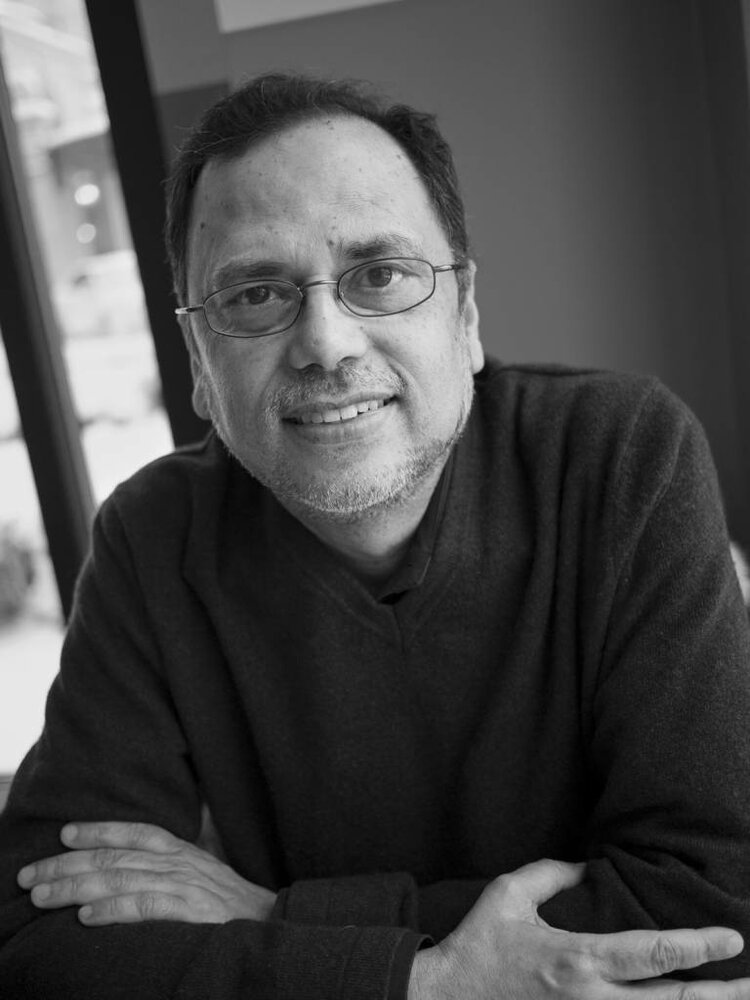
Affiliated Faculty, Department of English
Courtesy Appointment, Law School
Faculty Fellow, Chicago Center for Contemporary Theory
Visiting Distinguished Professor, School of Culture, History, and Language, The Australian National University, Canberra
Australian National University, PhD ' 84
BIOGRAPHY
Dipesh Chakrabarty holds a BSc (physics honors) degree from Presidency College, University of Calcutta, a postgraduate Diploma in management (considered equivalent to MBA) from the Indian Institute of Management, Calcutta, and a PhD (history) from the Australian National University. He is currently the Lawrence A. Kimpton Distinguished Service Professor in History, South Asian Languages and Civilizations, and the College. He is a faculty fellow of the Chicago Center for Contemporary Theory and, by courtesy, a faculty member in the Law School.
He is a founding member of the editorial collective of Subaltern Studies, a consulting editor of Critical Inquiry, and a founding editor of Postcolonial Studies. He has also served on the editorial boards of the American Historical Review and Public Culture.
Honors and Awards (Selected)
- Awarded the Prix Européen de l’Essai or the European Essay Prize for Après le changement climatique: penser l’histoire (Paris: Gallimard, 2023), the French translation of The Climate of History in a Planetary Age (2021)
- DLitt. (Honoris Causa), University of London (conferred at Goldsmiths), 2010
- Honorary doctorate, University of Antwerp, Belgium, 2011
- Honorary doctorate, École Normale Supérieure, 2021
- Toynbee Foundation Prize, for contributions to global history, 2014
- Tagore Memorial Prize, Government of West Bengal, 2019, for The Crises of Civilization (2018)
- Jadunath Sarkar Memorial Gold Medal, Asiatic Society of Bengal, Kolkata, 2021 for contribution to History
- Fellow, American Academy of Arts & Sciences
- Honorary Fellow, Australian Academy of the Humanities
- Fellow, British Academy
Fellowships and Visiting Professorships (Selected)
- Visiting Fellow, Max Planck Institute for Historical Sciences, 2005
- American Institute of Indian Studies Senior Fellowship, 2005–6
- Honorary Professorial Fellow, School of Historical Studies, University of Melbourne, 2007–2011
- Fellow, Wissenschaftskolleg, Berlin, 2008–9
- Fellow, Institute of Human Sciences (IWM), Vienna, 2010
- Hallsworth Visiting Professor, University of Manchester, 2010
- Dean’s Distinguished Visitor, College of Asia and Pacific, Australian National University, 2015–2027
- Visiting Professor, École Normale Supérieure, Paris, 2019
- Visiting Professor, The University of Technology, Sydney, Australia (to present)
Research Supervision
Chakrabarty’s current students in History and SALC work on a variety of topics: 20th-century Kerala, prostitution in British India, India-China relations in the 1950s, modern Islam in Bangladeshi history, youth culture in colonial Bengal, the history of modern Bengali music, state-making and representations of royalty in Nepal, the labor history of Bombay, and the energy history of Maharashtra.
Recently completed theses include work on epidemics in the British Empire, the history of the Sino-Indian boundary, the history of the idea of “popular sovereignty” in colonial India, Yunani medicine, the politics of water in Pakistan, India reform societies in nineteenth-century Britain, slavery in south India, environmental consciousness in Hindi literature, the East India Company in the eighteenth century, the Vaishnava movement in nineteenth-century Bengal, the history of the film industry in Bengal, the history of housing in Bombay in the early part of the twentieth century, comparative indigenous histories of Australia, Canada, and New Zealand, the culture-concept in Bengali history, visual aspects of the rebellion of 1857, the making of the Indian constitution, the sixties in Pakistan, low-caste politics in Bengal during the Partition, Assam tea-plantations, missionaries in Orissa, religious thought among Bengali Muslims in the nineteenth and early twentieth centuries, mass politics in Bangladesh, labor in Delhi, the history of the Anglo-Indian communities in India, the history of photo-journalism in Bengal, the evolution of the qazi and mufti in British India, and the intellectual history of Mughal India.
Recent Research / Recent Publications
- Rethinking Working-Class History: Bengal 1890–1940 (Princeton, 1989; 2000)
- Provincializing Europe: Postcolonial Thought and Historical Difference (Princeton, 2000; second edition, 2008) – translated into Italian, Spanish, French, Polish, Turkish, Korean, and Russian
- Habitations of Modernity: Essays in the Wake of Subaltern Studies (Chicago, 2002) – translated into Arabic (Kalima, 2011)
- The Calling of History: Sir Jadunath Sarkar and His Empire of Truth, c. 1900–1950 (Chicago, 2015)
- The Crises of Civilization: Exploring Global and Planetary Histories (Delhi: Oxford, 2018) with Ranajit Dasgupta, Some Aspects of Labour History of Bengal in the Nineteenth Century: Two Views (Delhi: Oxford, 2019) – translated into Bengali
- The Climate of History in a Planetary Age (Chicago, 2021; New Delhi: Primus, 2021) – Translated into German, Spanish, and French with Portuguese, Korean, and Chinese translations forthcoming
- One Planet, Many Worlds: The Climate Parallax (Brandeis, 2023) – Korean translation forthcoming
- Lectures in the Human Sciences, Institute for the Human Sciences (IWM), Vienna, 2014
- Radhakrishnan Memorial Lectures at All Souls’ College, Oxford, 2014
- Tanner Lectures in Human Values, Yale, 2015
- Mandel lectures in the Humanities, Brandeis, 2017
- History and Theory annual lecture, Harvard, 2017
- inaugural Halle Lectures in the Humanities, Halle, 2018
- William James Lecture, Harvard Divinity School, 2019
- Sixth Annual Ikeda Lecture on Peace and Harmony, Singapore Management University, Singapore, 2020
- inaugural Contributions to Indian Sociology Lecture, Indian Institute of Economic Growth, Delhi, 2021
- Golden Jubilee lecture, Centre for Studies in Social Sciences, Kolkata, 2023
- What We Have in Common in this Fragmented World,” General Conference, UNESCO, 2023
- keynote, European Congress of Theology, Heidelberg, 2024
- Smuts Memorial Lectures, University of Cambridge, March 2025
- with Shahid Amin, Subaltern Studies IX (Delhi: Oxford, 1996)
- with Carol Breckenridge, Homi Bhabha, and Sheldon Pollock, Cosmopolitanism (Duke, 2000)
- with Rochona Majumdar and Andrew Sartori, From the Colonial to the Postcolonial: India and Pakistan in Transition (Delhi: Oxford, 2007)
- with Bain Attwood and Claudio Lomnitz, “The Public Life of History,” a special issue of Public Culture (2008)
- with Henning Trueper and Sanjay Subrahmanyam, Historical Teleologies in the Modern World (Bloomsbury, 2015)
- Itihasher janajibon o anyanyo probondho [The Public Life of History and Other Essays] (Kolkata: Ananda, 2011)
- Monorather Thikana [Where the Mind Travels], ed. Sanjib Mukhopadhyay (Kolkata: Anustup, 2018) – Shortlisted for the Ananda literary prize in Calcutta in 2019
- Bondhur chithi Bondhuke [Letters Between Friends] (Kolkata: Anustup, 2019) – correspondence between Dipesh Chakrabarty and the deceased Bengali writer Raghab Bandyopadhyay, 2003–2016
- Smriti, Satta, Songlap [Memories, Identities, and Conversations] (Calcutta: Nirjhor Publications, 2023)
- “The Climate History: Four Theses,” Critical Inquiry (Winter 2009): 197–222. Translated as “Le Climat de L'Histoire: Quatre Theses.” La Revue Internationale 5 (January-February 2010): 22–31. Also carried in Eurozine (October 30, 2009), and translated into German, Spanish, Hungarian, Malayalam, Korean, and Chinese.
- “From Civilization to Globalization: The West as a Signifier in Indian Modernity,” Inter–Asian Cultural Studies 13, no. 1 (2012). French translation published in La Revue des Libres (January 31, 2012).
- “Postcolonial Studies and the Challenge of Climate Change,” New Literary History 43, no. 1 (Winter 2012): 1–18.
- “Friendships in the Shadow of Empire: Rabindranath Tagore’s Reception in Chicago, c. 1913–1932,” Modern Asian Studies 48, no. 5 (September 2014): 1161–1187.
- “Climate and Capital: On Conjoined Histories,” Critical Inquiry (Fall 2014): 1–23.
- “The Human Significance of the Anthropocene,” in Reset Modernity! ed. Bruno Latour (Cambridge, MA: MIT Press, 2016).
- “The Politics of Climate Change Is More Than the Politics of Capitalism,” Theory, Culture, & Society 34, nos. 2-3 (March-May 2017): 25–37.
- “Between World History and Earth History: Anthropocene Time,” History and Theory (March 2018): 5–32.
- “The Planet: An Emergent Humanist Category,” Critical Inquiry 46, no. 1 (Autumn 2019): 1–31.
- “The Human Sciences and Climate Change: A Crisis of Anthropocentrism,” Science and Culture 86, nos. 1–2 (January–February, 2020): 46–8.
- with Bruno Latour, “Conflicts of Planetary Proportions – A Conversation,” Journal of the Philosophy of History 14 (2020): 419-454.
- “Planetary Humanities: Straddling the Postcolonial/Decolonial Divide,” Daedalus 151, no.3 (Summer 2022): 222-233.
- Saurabh Dube, Ajay Skaria, and Sanjay Seth, eds., Dipesh Chakrabarty and the Global South: Subaltern Studies, Postcolonial Perspectives, and the Anthropocene (Routledge, 2020)
- special issue, Práticas da História, No. 11 (2020), marking the twentieth year since the publication of Provincializing Europe
- Ahmed Kamal, ed., Somoyer Kuyashay [In the Mists of TIme] (Dhaka: University Press, 2023)
“Tagore in Our Times and His” (Inaugural Lecture, The Tagore Program, University of California, Berkeley, February 22, 2020)
“The Planet: An Emergent Matter of Spiritual Concern?” (William James Lecture, Harvard Divinity School, May 1, 2019)
The Fifth Annual Mandel Lectures in the Humanities (Brandeis University, March 13, 14, and 16, 2017)
“Talk on Climate Change and the Humanities” (talk presented at Centre for Policy Research, New Delhi, March 1, 2016)
Tanner Lectures on Human Values (Yale University, February 18–20, 2015)
- Lecture 1: “Climate Change as Epochal Consciousness”
- Lecture 2: “Decentering the Human? Gaia”
- Roundtable: “The Human Condition in the Anthropocene: Roundtable Discussion”
“Rethinking Working Class: Postcolonial Perspectives on a Revolutionary Concept” (Rosa-Luxemburg-Stiftung, October 29, 2014)
30 Years of Elementary Aspects of Peasant Insurgency in Colonial India, Centre for the Study of Developing Societies, Feb. 13, 2013
The Anthropocene Project: An Opening, Haus der Kulturen der Welt, Berlin, Jan. 10–13, 2013
“The Calling of History: Sir Jadunath Sarkar and the Birth of Historical Research in India” (paper presented at the annual B.N. Ganguli Memorial Lecture series at the Centre for the Study of Developing Societies, Delhi, India, October 30, 2012)
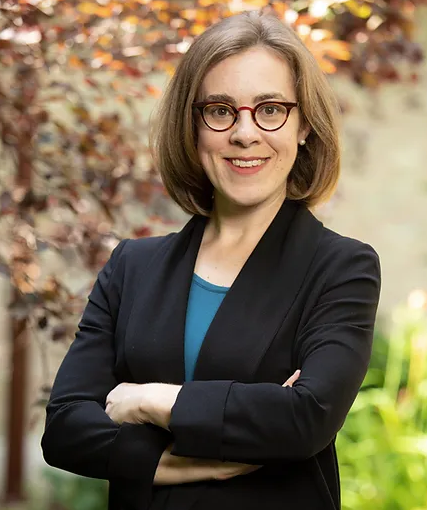
Yale University, PhD '09
BIOGRAPHY
I am an historian of modern Russia, with a special interest in nineteenth- and twentieth-century politics, culture, and ideas. My work explores how Russia's peculiar political institutions—and its status as a multiethnic empire—shaped public opinion and political cultures. It also interrogates Russia's relationship with the outside world, asking where the Russian experience belongs in the broader context of European and global history. In addition, I am interested in the theory and practice of the digital humanities.
I am currently working on a new history of the origins of the Protocols of the Elders of Zion written for a popular audience. This book offers a new account of how this notorious text came to be, and it asks what history's greatest conspiracy theory can tell us about the present moment, when conspiratorial thinking is again on the rise in society and politics.
My most recent book, Utopia’s Discontents: Russian Exiles and the Quest for Freedom, 1830–1930, was published by Oxford University Press in 2021. It is the recipient of the 2022 Wayne S. Vucinich Book Prize from ASEEES, which recognizes the most important contribution in any discipline of Slavic studies. The book provides the first synthetic account of Europe's "Russian colonies"—boisterous and politically fractious communities formed by exiles from the Russian empire that emerged across the continent in the nineteenth and early twentieth centuries. The book treats the "Russian colonies" as utopian communities in which radical activists worked to transform social relations and individual behavior, and it explores how these unique spaces influenced Russian political imaginaries as well as the culture of their host societies. Ultimately, the project offers a bold reassessment of Russia's relationship with Europe, the origins of the Russian revolution, and the creation of the Bolshevik regime.
My first book, Children of Rus’: Right-Bank Ukraine and the Invention of a Russian Nation, was published by Cornell University Press in 2013 and released in paperback in 2017. Children of Rus' argues that it was on the extreme periphery of the tsarist empire—a region that today is located at the very center of the independent nation of Ukraine—that Russian nationalism first took shape and assumed its most potent form. The book reconstructs how nineteenth-century provincial intellectuals came to see local folk customs as the purest manifestation of an ancient nation that unified all the Orthodox East Slavs, and how they successfully propagated their ideas across the empire through lobbying and mass political mobilization. In addition, it reconceptualizes state-society relations under tsarism, showing how residents of a diverse and contested peripheral region managed to shape political ideas and identities across Russia—and even beyond its borders. Children of Rus' was named a Choice Outstanding Academic Title for 2013.
My current research is enriched by technology, and I am interested in thinking through how historians can use digital tools to open new avenues for exploration and to communicate their findings to other scholars and the general public. I am particularly interested in using geo-spatial analysis to analyze flows of people, ideas, and commodities over time and across space. For examples of my (ongoing) work in digital cartography, see my Utopia's Discontents website in development and my study of émigré publications.
I have held research fellowships at Columbia, Harvard, and the Cullman Center for Scholars and Writers at the New York Public Library. My research has been funded by ACLS, IREX, Fulbright-Hays, and the NEH.
I am represented by Kathleen Anderson (kathleen@andersonliterary.com) of Anderson Literary Management.
Recent Research / Recent Publications
- Utopia’s Discontents: Russian Émigrés and the Quest for Freedom, 1830s-1930s, Oxford University Press, 2021. Awarded the 2022 Wayne S. Vucinich Prize.
- "'The Franco-Russian Marseillaise': International Exchange and the Making of Anti-Liberal Politics in Fin-de-Siècle France." Journal of Modern History 89, no. 1 (Mar. 2017): 39–78.
- "Children of Rus’: Nationalist Imaginations in Right-Bank Ukraine." In The Future of the Past: New Perspectives in Ukrainian History, edited by Serhii Plokhy. Cambridge, MA: Harvard University Press, 2016.
- "Making and Breaking the Russian Empire: The Case of Kiev’s Shul’gin Family." In Imperiale Biographien: Elitekarrieren im Habsburger, Russischen und Osmanischen Vielvölkerreich (1850–1918), edited by Malte Rolf and Tim Buchen, 178–98. Munich: Oldenbourg-Verlag, 2015.
- "Intimacy and Antipathy: Russian-Ukrainian Relations in Historical Perspective." Kritika 16, no. 1 (Win. 2015): 121–28.
- Children of Rus': Right-Bank Ukraine and the Invention of a Russian Nation. Ithaca, NY: Cornell University Press, 2013.
- "Modernist Visions and Political Conflict in Late Imperial Kiev." In Races to Modernity: Metropolitan Aspirations in Eastern Europe, 1890–1940, edited by Jan C. Behrends and Martin Kolrausch. New York: Central European Press, 2014.
- "Ukrainophile Activism and Imperial Governance in Russia's Southwestern Borderlands." Kritika 13, no. 2 (Spr. 2012): 301–26.
- "Migration, Mobility, and Political Conflict in Late Imperial Kiev." In Russia on the Move: Essays on the Politics, Society and Culture of Human Mobility, 1850–Present, edited by John Randolph and Eugene Avrutin. Urbana: University of Illinois Press, Studies of World Migrations Series, 2011.
- Writes op-ed on seizing Russian oligarchs' wealth for The Atlantic
- Interviewed for Meduza on Putin's presentation of Ukrainian and Soviet history
- Quoted in USA Today article on how historians see the invasion of Ukraine
- Quoted in Politifact on the history of Russian imperialism
- Interviewed for The World on the entangled histories of Russia and Ukraine
- Writes op-ed on immigration for The Washington Post
- Quoted in Chicago Tribune article on the meaning of "concentration camp"
- Named a 2018–19 Cullman Center Fellow at the New York Public Library
- Review of AHA session on "History and Historians in the Ukraine Crisis" by Sarah Fenton
- Quoted in National Geographic article on Ukrainian-Russian conflict
- Children of Rus' reviewed in the Moscow Times
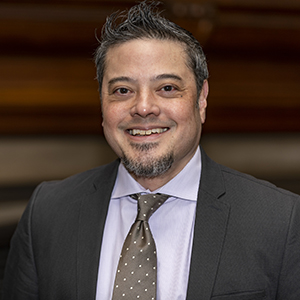
Harvard University, PhD '05
BIOGRAPHY
A deep and abiding interest in the interactions between Asian Americans and African Americans drives my first book manuscript. Focusing primarily on the home front culture of World War II, but utilizing the necessary bookends of the Popular Front of the 1930s and the Cold War of the 1950s, my monograph interrogates the ways in which different racialized and ethnic groups interacted during a heightened sense of possibility for an American multiracial democracy. Unpublished diaries of incarcerated Japanese American, Charles Kikuchi, serve as a narrative through-line for the manuscript—he wrote every day of his life, from the bombing of Pearl Harbor until his death in 1988. While Kikuchi can be considered one of a handful of radical Nisei (second-generation) intellectuals consumed by the constitutional violation of Japanese Americans, he was most deeply concerned with the welfare of African Americans and other oppressed minorities. Recognition of their equality by the rest of the nation would prove key to the fulfillment of democracy at home and abroad. My book therefore considers prototypes for Kikuchi, like Karl Yoneda, a highly visible Communist Party member during the Popular Front, intellectual mentors during the war, such as immigrant activist Louis Adamic, W.I. Thomas, and Dorothy Thomas, social scientists associated with, respectively, the Chicago school of sociology and Japanese evacuation and resettlement study, and “everyday people,” from African Americans on the South Side of Chicago to Filipino migratory farm laborers in central California. The Cold War closes off some of the interracial and democratic possibilities of this fertile intellectual era, but not before a constellation of radical counterpublics appear on the national and international maps. A cartography of this period, therefore, demonstrates not only the importance of reexamination of the Kikuchi diaries, but also the efforts and limits of these particular publics to repossess, reclaim, and redefine American democracy.
I have been honored to be a dissertation fellow at the Charles Warren Center for Studies in American History, and an Andrew W. Mellon Foundation Postdoctoral Fellow. Prior to Chicago, I taught at Harvard, Princeton, Columbia, and most recently, the University of Michigan.
Recent Research / Recent Publications
- “Filipino Grief in Five Acts.” Amerasia Journal, (2024), 1–7.
- "Race (& Love) Matter More Than Ever Now: Affirmative Action, Alliances, and Anti-Asian Hate.” In Prophetic Leadership and Visionary Hope: New Essays on the Work of Cornel West. Edited by Barbara Will. Philadelphia: University of Pennsylvania Press, 2023: 161-177.
- Jim and Jap Crow: A Cultural History of 1940's Interracial America. Princeton, NJ: Princeton University Press, 2012.
- "Charles Kikuchi's 'American Dilemma': African Americans in the Unpublished Diaries of a Nisei Intellectual." In Journey into Otherness: Essays in North American History, Culture and Literature, 191–203. Edited by Ada Savin. Amsterdam: VU Press, 2005.
- "Hardly 'Small Talk': Discussing Race in the Writing of Hisaye Yamamoto." Prospects: An Annual of American Cultural Studies 29 (2005): 435–72.
- "The Unpublished Diaries of Charles Kikuchi: 'Black and Yellow' through the Eyes of a Progressive Nisei Intellectual." Prospects: An Annual of American Cultural Studies 28 (2004): 383–47.
- "Call-and-Response: Tracing the Ideological Shifts of Richard Wright through His Correspondence with Friends and Fellow Literati." African American Review 37, no. 1 (spring 2003): 53–64.
- Interviewed on The Course Podcast, Episode 28, "How do People Get Along?"
- Discusses baseball and African American culture with the New York Times
- Discusses the connection between racism and violent attacks
- Discusses baseball, race, and history with the alumni magazine
- Delivered 2015 Harper Lecture on "Illusion Fields: Baseball and US History" [video; go to 12.40 minutes beginning of lecture; total video 73 minutes]
- Awarded 2015 Quantrell Award for Excellence in Undergraduate Teaching Excellence in Undergraduate Teaching
- BookTV (CSPAN2) conversation with Cornel West at Harlem's Hue-Man Bookstore, May 2012.
- "Just a Friendly Game." Interview with Desmond Nakano, director of White Man's Burden (1995) and American Pastime (2007). Nakano's latest film revisits the Japanese American incarceration through the lens of camp league baseball games, jazz-band swinging, and interracial romance. From Cinevue: Program for the Asian American International Film Festival, 2007.
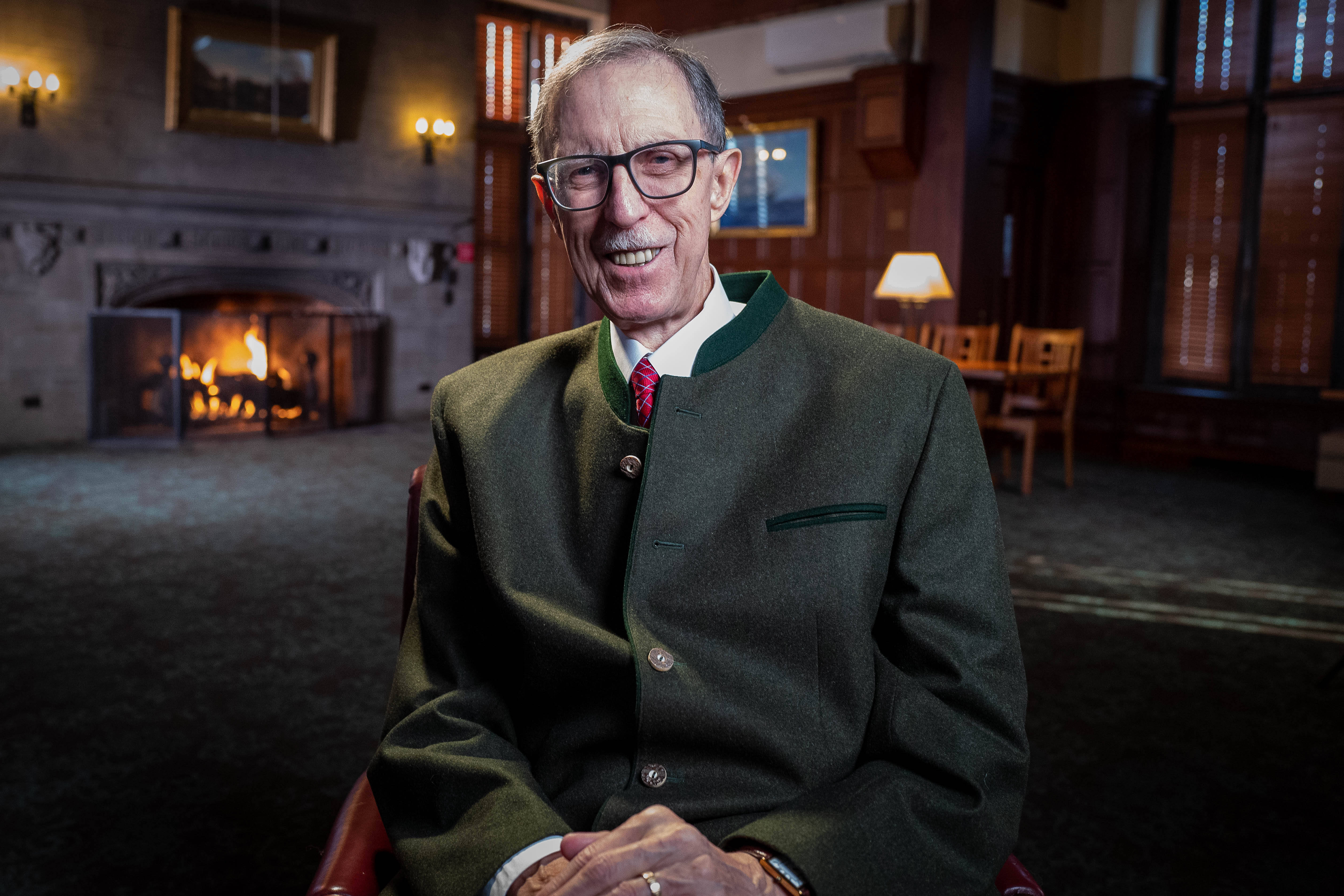
University of Chicago, PhD '75
BIOGRAPHY
My research and teaching focus on the history of modern Europe, especially on the states, the peoples, and the societies of Central Europe since 1700. My special teaching interests are German history from 1740 to 1918; the history of the Hapsburg Empire between 1648 and 1918, and the history of Austria from 1918 to the present; religion and politics in modern European history; and the history of European and American universities in the nineteenth and twentieth centuries.
In recent years my work has dealt with the history of the University and with the history of the Habsburg Empire and Republican Austria. I published The University of Chicago: A History (University of Chicago Press, 2015), and I have recently completed the Austria, 1867–1955 volume for the Oxford History of Modern Europe series, published by Oxford University Press in late 2022.
I am now working on a history of Religion and Politics in Modern European History from 1789 to 1960 for Princeton University Press.
With Jan E. Goldstein and Fredrik Albritton Jonsson, I am also an editor of The Journal of Modern History.
Recent Research / Recent Publications
- Austria, 1867-1955. Oxford History of Modern Europe Series. Oxford: Oxford University Press, 2022.
- Karl Lueger (1844–1910). Christlichsoziale Politik als Beruf. Vienna: Böhlau Verlag, 2009.
- Culture and Political Crisis in Vienna: Christian Socialism in Power, 1897–1918. Chicago: University of Chicago Press, 1995.
- Political Radicalism in Late Imperial Vienna: Origins of the Christian Social Movement, 1848–1897. Chicago: University of Chicago Press, 1981.
- Coeditor (with Jan E. Goldstein). Nineteenth-Century Europe: Liberalism and Its Critics. Chicago: University of Chicago Press, 1988.
- Coeditor (with Jan E. Goldstein). Twentieth-Century Europe. Chicago: University of Chicago Press, 1987.
- “A Catholic Triptych from Monarchy to Republic: Ignaz Seipel, Richard Schmitz, and Michael Pfliegler,” in Ulrike Harmat, ed., Die Habsburgermonarchie 1848-1918. Sonderband. Das Erbe der Habsburgermonarchie in den Nachfolgestaaten. Brüche und Kontinuitäten (Vienna, 2025), pp. 917-52.
- "Die Gründung der Republik (1918)." In 100 Jahre Republik: Meilensteine und Wendepunkte 1918–1920. Edited by Andreas Huber. Vienna, 2020.
- "From an Absolutist to a Constitutional State: The Political System." In Franz Joseph 1830–1916. Edited by Karl Vocelka and Martin Mutschlechner, 34–37. Vienna: Brandstätter, 2016.
- "Badeni and the Revolution of 1897." In Bananen, Cola, Zeitgeschichte: Oliver Rathkolb und das lange 20. Jahrhundert. Edited by Lucile Dreidemy et al. 2 vols. Vienna: Böhlau, 2015. Vol. 1, 69–84.
- "Power, Partisanship, and the Grid of Democratic Politics: 1907 as the Pivot Point of Modern Austrian History." Austrian History Yearbook 44 (2013): 148–74.
- "Richard Schmitz and the Tradition of Imperial Catholic Politics in Austria 1907–1934." Demokratie und Geschichte. Jahrbuch des Karl von Vogelsang-Institutes 13/14 (2009/2010): 95–134.
- "The 'Collectivism of Democracy': Mass Politics in Vienna and Chicago, 1890–1918." Jahrbuch des Vereins für Geschichte der Stadt Wien 62/63 (2006/2007): 9–49.
- "Tradition und Wandel—Die Christlich Soziale Partei am Vorabend des Ersten Weltkrieges." Demokratie und Geschichte. Jahrbuch des Karl von Vogelsang-Institutes 9/10 (2005/2006): 73–99.
- "Political Catholicism in Austria, 1880-1960." Contemporary Austrian Studies 13 (2004): 6–36.
- "Silent War and Bitter Peace: The Austrian Revolution of 1918." Austrian History Yearbook 34 (2003): 1–56.
- "Wiener Konservatismus vom Reich zur Republik: Ignaz Seipel und die österreichische Politik." In Konservative Profile: Ideen und Praxis in der Politik zwischen FM Radetzky, Karl Kraus und Alois Mock. Edited by Ulrich E. Zellenberg, 341–361. Graz: Ares, 2003.
- "Catholics, Christians, and the Challenges of Democracy: The Heritage of the Nineteenth Century." In Christdemokratie in Europa im 20. Jahrhundert. Edited by Michael Gehler, Wolfram Kaiser, and Helmut Wohnout, 23–59. Vienna: Böhlau, 2001.
- "Religion and Political Development in Central Europe around 1900: A View from Vienna." Austrian History Yearbook 25 (1994): 13–57.
- "Christian Socialism under the Empire. Some Reflections." In Geschichte Zwischen Freiheit und Ordnung, 57–74. Graz: Styria, 1991.
- "Some Reflections on the Problem of Austria, Germany, and Mitteleuropa." Central European History 22 (1989): 301–15.
- "Austrian Catholics and the World: Facing Political Turmoil in the Early Twentieth Century." In The Mirror of History, 315–352. Santa Barbara, CA: ABC-Clio, 1988.
- Austria in the 1980s: Heritage of the Past, Contours of the Future. Washington, DC: Aspen Institute for Humanistic Studies, 1987.
- "The End of an Old Regime: Visions of Political Reform in Late Imperial Austria." Journal of Modern History 58 (1986): 159–93.
- "Karl Lueger and the Viennese Jews." Yearbook: The Leo Baeck Institute 26 (1981): 125–44.
- "Veränderungen im politischen Leben Wiens: Die Grossstadt Wien, der Radikalismus der Beamten und die Wahlen von 1891." Jahrbuchdes Vereins für Geschichte der Stadt Wien 36/37 (1980/1981): 95–172/117–76.
- "Freud, Marriage and Late Viennese Liberalism: A Commentary from 1905." Journal of Modern History 50 (1978): 72–102.
- "A. J. P. Taylor and the Art of Modern History." Journal of Modern History 49 (1977): 40–72.
- The University of Chicago: A History, Enlarged Edition. Chicago: University of Chicago Press, 2024.
- The University of Chicago: A History. Chicago: University of Chicago Press, 2015.
The following papers are published in the College's Occasional Papers on Higher Education Series.
- Volume XXVII. Thirty Years in the Field | Annual Report to Faculty – October 25, 2022
- Volume XXVI. Insider Visions of the University: Thorstein Veblen, William Benton and John Benton on the Identity of the University of Chicago – October 26, 2021
- Volume XXV. Charles H. Judd, an Empire of Testing, and the 'Science of Education' – October 29, 2019
- Volume XXIV. ‘The Universities and the Promise of American Life – October 24, 2017
- Volume XXIII. ‘Higher Education in America and Europe Around 1900’: Some Perspectives on Our Shared History and Its Relevance For Our Time – October 18, 2016
- Volume XXII. ‘A Hell of a Job Getting it Squared Around’: Three Presidents in Times of Fundamental Change: Ernest D. Burton, Lawrence A. Kimpton, and Edward H. Levi – October 30, 2012
- Volume XXI. ‘Teaching at a University of a Certain Sort’: Education at the University of Chicago Over the Past Century – October 18, 2011
- Volume XX. ‘Not as a Thing for the Moment, but for All Time’: The University of Chicago and Its Histories – October 19, 2010
- Volume XIX. ‘A Noble and Symmetrical Conception of Life’: The Arts at Chicago on the Edge of a New Century – October 27, 2009
- Volume XVIII. ‘The Kind of University That We Desire to Become’: Student Housing and the Educational Mission of the University of Chicago – October 28, 2008
- Volume XVII. ‘We are All Islanders to Begin With’: The University of Chicago and the World in the Late Nineteenth and Twentieth Centuries – October 30, 2007
- Volume XVI. A Twentieth-century Cosmos: The New Plan and the Origins of General Education at Chicago – October 31, 2006
- Volume XV. ‘Broad and Christian in the Fullest Sense’: William Rainey Harper and the University of Chicago – October 25, 2005
- Volume XIII. The ‘Persistence to Keep Everlastingly at It’: Fund-raising and Philanthropy at Chicago in the Twentieth Century – October 26, 2004
- Volume XII. Judson’s War and Hutchins’s Peace: The University of Chicago and War in the Twentieth Century – October 28, 2003
- Volume X. Academic Freedom and the Modern University: The Experience of the University of Chicago – May 20, 2016
- Volume VIII. The Organization of the College and the Divisions in the 1920s and 1930s – October 30, 2001
- Volume VI. Building for a Long Future: The Role of the Trustees in the Early University – October 17, 2000
- Volume IV. The University of Chicago in the 1960s and 1970s – October 19, 1999
- Volume III. Continuity & Change: The College as a Sponsor of Research and Teaching – October 20, 1998
- Volume II. Continuity & Change: The College as an Advocate of Curricular Innovation and Debate – October 21, 1997
- Volume I. Continuity & Change: The College as a Member of the Wider University – October 22, 1996
- "Drafting Salvation." University of Chicago Magazine (December 1995): 18–21.
- Appointed to Sixth Term as Dean of the College
- Completes a scholarly history of the University of Chicago.
- Awarded a doctorate honoris causa by the University of Vienna on the occasion of the university's 650th anniversary, at the Dies Honorum ceremony in Vienna on May 13, 2015.
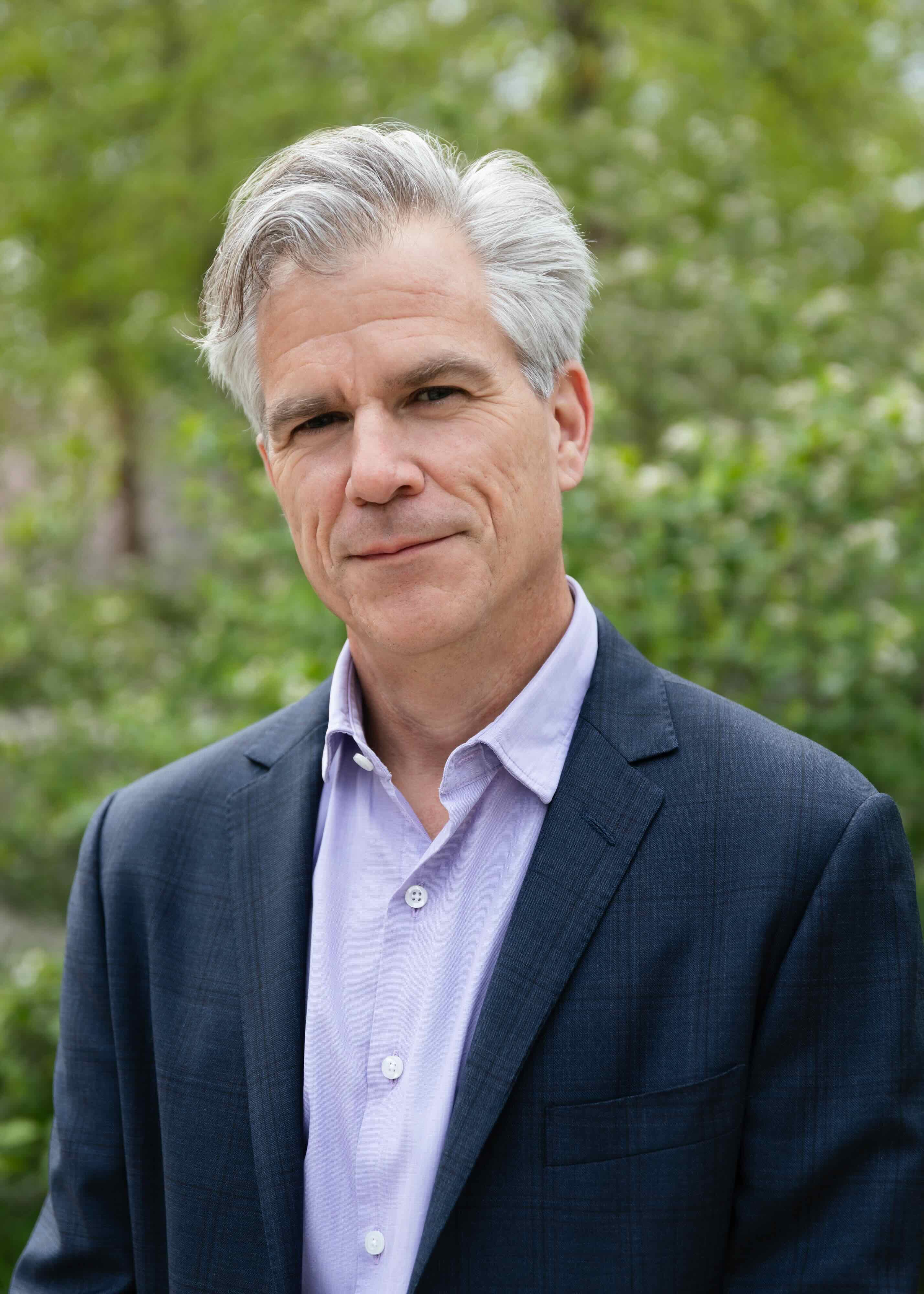
Columbia University, PhD '02
BIOGRAPHY
Paul Cheney is an historian of Europe with a specialization in old regime France and its colonial empire. Before beginning his PhD training in history at Columbia University, he studied political economy at the New School for Social Research. He has taught at Columbia University, the European College of Liberal Arts (Berlin), and the Queen's University of Belfast.
The unifying element of Professor Cheney’s work is an interest in early modern capitalism, and in particular the problem of how modern social and political forms gestated within traditional society. Old regime France serves as an excellent case study in this problem because of the way in which it combined real economic dynamism with deep-seated political and social impediments to growth. He addresses France’s integration into a globalized early modern economy in a methodology diverse way, drawing on intellectual, economic, and social history. His first book, Revolutionary Commerce: Globalization in the French Monarchy (Harvard University Press, 2010), examined how French philosophes, merchants, and administrators understood the adaptability of the French monarchy to the modernizing forces of primitive globalization. Currently, he is working on a second book entitled, Cul de Sac: Patrimony, Capitalism, and Slavery in French Saint-Domingue (University of Chicago Press, 2017), a micro-history of one plantation in France’s richest colony. He has published in such journals as The William and Mary Quarterly, Past & Present, Dix-Huitième siècle, and Les Annales historiques de la révolution française.
Recent Graduate Courses
- The French Revolution
- Old Regime France
- Atlantic Worlds, c. 1700–1800
- Political Economy and the Invention of Society, c. 1680–1830
- Montesquieu and the Enlightenment, with Robert Morrissey, Department of Romance Languages and Literatures
- Revolutionary Culture in Eighteenth-Century France and America, with Eric Slauter, Department of English
Recent Research / Recent Publications
- Cul de Sac: Patrimony, Capitalism, and Slavery in French Saint-Domingue. Chicago: University of Chicago Press, 2017. Published in French as Cul de Sac: Une Plantation à Saint-Domingue au XVIIIe siècle. Arthème Fayard, 2022.
- Revolutionary Commerce: Globalization and the French Monarchy. Cambridge, MA: Harvard University Press, 2010.
- “The Capitalism and Slavery Debate: Land, Labor, and Capital,” Critical Historical Studies 12, no. 1 (2025): 1–22.
- “Inheritance and Incest: Toward a Lévi-Straussian Reading of Montesquieu’s De l’esprit des lois,” History and Theory 64.1 (2025): 46–74. (open access)
- “Le Débat sur capitalisme et esclavage : un débat inachevé,” In Travail servile et dynamiques économiques XVIe-XXIe siècle, edited by Mendes, Almeida, Conchon, Anne, Alessandro Stanziani, and Myriam Cottias, 97–116. Paris: IGPDE-Comité pour l’histoire économique et financière de la France, 2024.
- “Political Economy,” in The Cambridge Companion to Montesquieu, eds. Keegan Callanan and Sharon Krause, Cambridge Companions to Philosophy (Cambridge University Press: 2023), 216-31. (Open access)
- "István Hont, the Cosmopolitan Theory of Commercial Globalization, and Twenty-First-Century Capitalism." Modern Intellectual History (15 March 2021): 1-29.
- "The French Revolution’s Global Turn and Capitalism’s Spatial Fixes." In "Forum: The French Revolution is Not Over." Special edition, Journal of Social History 52, no. 4 (Summer 2019).
- "Haiti's Commercial Treaties: Between Abolition and the Persistence of the Old Regime." In Balance of Power, Balance of Trade: the Politics of Commercial Treaties in the Eighteenth Century. Edited by Antonella Alimento and Koen Stapelbroek. London: Palgrave Macmillan, 2017.
- "Commerce." In The Cambridge Companion to the French Enlightenment. Edited by Daniel Brewer. Cambridge: Cambridge University Press, 2014. (Open access)
- "Aufklärung und die politische Ökonomie des Kolonialismus.” In Der moderne Staat und „le doux commerce”–Staat, Ökonomie und internationales System im politischen Denken der Aufklärung. Edited by Olaf Asbach. Baden-Baden: Nomos, 2014.
- With Alan Forrest, Lynn Hunt, Mathias Middel, and Karine Rance. "La révolution française à l'heure du Global Turn." Annales historiques de la Révolution française 374 (Dec. 2013). [link requires subscription access].
- With Loïc Charles. "The Colonial Machine Dismantled: Knowledge and Empire in the French Atlantic." Past and Present 219 (May 2013). [link requires subscription access]
- "A Colonial Cul de Sac: Plantation Life in Wartime Saint-Domingue, 1775-1783." Radical History Review: Special issue Haitian Lives /Global Perspectives 115 (Win. 2013): 45–54. [link requires subscription access]
- "A False Dawn for Enlightenment Cosmopolitanism? Franco-American Trade during the American War of Independence." The William and Mary Quarterly 63 (July 2006): 459–84. [link requires subscription access]
- "L'Histoire du commerce." In Le Cercle de Vincent de Gournay: savoirs économiques et pratiques administratives en France au milieu du xviii siècle. Edited by Loïc Charles, Frédéric Lefebvre, and Christine Théré. Paris: INED, 2011.
- "Finances, Philosophical History and the 'Empire of Climate': Enlightenment Historiography and Political Economy." Historical Reflections 31, no. 1 (2005): 141–67. [link requires subscription access]
- "Les économistes français et l'image de l'Amérique: l'essor du commerce transatlantique et l'effondrement du 'gouvernement féodal'." Dix-huitième siècle 33 (2001): 229–43.
- "Constitution and Economy in David Hume's Enlightenment." In David Hume's Political Economy. Edited by Margaret Schabas and Carl Wennerlind. London: Routledge, 2008.
- "Lumières écossaises." In Dictionnaire électronique Montesquieu. Edited by the École normale supérieure de Lyon, pour le compte de l’Institut d’histoire de la pensée classique. February 2008 (September 2013, 2nd ed.).
- Awarded the Society for French Historical Studies' 2018 Gilbert Chinard Prize for Cul de Sac.
- Receives NEH grant to conduct a summer seminar for college and university teachers in July 2018.
- Published Cul de Sac: Patrimony, Capitalism, and Slavery in French Saint-Domingue (Chicago, 2017)
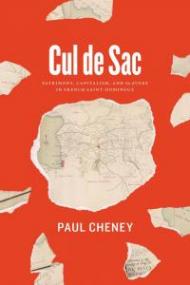
- Delivers plenary lecture at Oxford University, United Kingdom
- Discusses his latest research on Saint-Domingue/Haïti at Aarhus University
- Invited to be a visiting professor the Ecole des Hautes Etudes en Sciences Sociales, Centre de Recherches Historiques, spring 2016
- Organizes conference on "Political Economy in the Age of Enlightenment and Revolution: Interdisciplinary Approaches"
- Collaborates with Parisian scholar on Colonial Plantation Economy
- “The French Revolution,” radio interview on WGN Chicago, Extension 720, March 22, 2011.
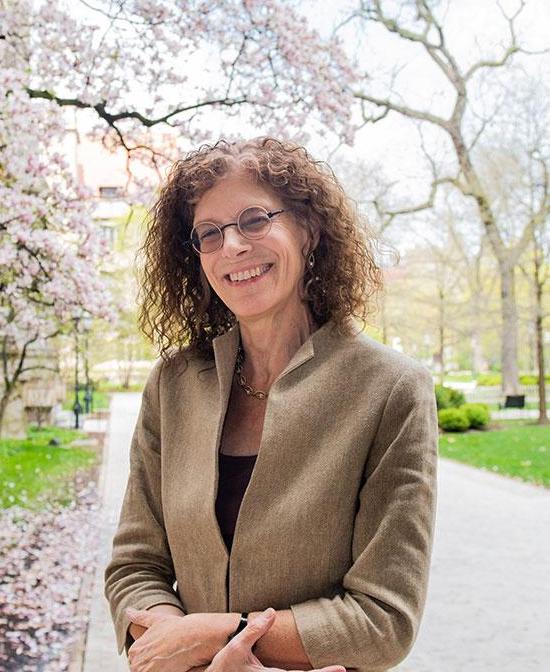
Brown University, PhD '88
BIOGRAPHY
The primary national focus of my research is modern France, but I have found myself intrigued by research problems best treated transnationally. My most recent book, Cultural Revolutions, moves across the Atlantic world from Britain, to colonial and early national America, and finally eastwards again to France. My ongoing pair of projects, Strangers at Home and Conundrums of Commemoration, stay on the European continent but involve a comparative analysis of Paris and Berlin in the twentieth century. Finally, although I have not yet published extensively in this area, I maintain an active interest in and regularly teach the history of European colonialism and the postcolonial world it left behind.
Conceptually, my work focuses on the intersection of material culture, everyday life, and politics. I seek to explain how and why everyday things have become catalysts for conflict, means of expressing identities and constructing selves, vehicles for dissenting opinions, and sites of unexpected state intervention. My research agenda is based on the hypothesis, informed by phenomenology and feminist theory, that key to answering these questions is the close and careful study of material culture, but a close and careful study that always links the concreteness of everyday goods to the abstractions of polity, society, and economy.
Although the courses I offer are necessarily broader and more general than this research agenda, they have been systematically informed by it. I use material and well as visual and textual sources in virtually all my classes, and nearly all are transnational in reach.
TEACHING
Undergraduate courses (selected)
-
Problems in Gender Studies
-
Europe 1930 to the present
-
Colonizations Civ III
-
Jewish Civ III
-
Modern Jewish History
-
Cultural Revolutions
Graduate courses (selected)
-
Seminar: Religion, Politics and Society in Modern Europe (with John Boyer)
-
Everyday Life in Modern Europe (with Sheila Fitzpatrick)
-
Seminar: The Politics of Memory in France and Germany (with Michael Geyer)
-
Gender in Europe (with Susan Gal)
-
Seminar: Race, Racism and and Anti-Racist Movements in Modern Europe
Recent fields for general examinations
-
Modern European History
-
Modern French History
-
Gender History and Theory
-
Culture and Politics in Modern Europe
-
European Social History
Titles of some recent (or current) AB and AM theses and PhD dissertations
-
Islam and the Republic: A Study of the Effects of the Algerian Civil War on French Understandings of Islam
-
Female Action and the Closing of the Women’s Clubs during the Reign of Terror
-
War Relic: Revisiting the Leaning Virgin of Albert
-
Working Class Milieus under Attack: Struggles between the Left and Right in Leipzig and Lyon, 1929–1936 (co-chair with Michael Geyer)
-
The Evolution of French Abolitionism and the Memories of the French and Haitian Revolutions, 1815–1848
-
The Ground Beneath their Feet: Agricultural Industrialisation and the Remapping of Rural France, 1954–1976
-
Making Islam French Unsettling French Algeria: Settlement, Terror, and Violence in the French-Algerian War, 1954–1962.
-
The Permanent Souvenir: Tattoos and Travel from Banks to Barnum Cultivating the Nation, Refining Empire: Wine, Sugar, and Nation-building in Guadeloupe and the Aude, 1880–1910
-
The Imperialism of Un-Free Trade: Nineteenth Century British Wine-Trading Enclaves in Oporto, Madeira, and Andalusia
-
Writing Black, Talking Back: Consuming, Performing, and Selling Race in Postwar France, 1945–1968
-
From Children to Citizens: Republican and Catholic Primary Education in France, 1880–1914
-
Fashioning the Folk: The Production and Reproduction of Alsatian Traditional Dress, 1871–1939
-
The Rebirth of the Mediterranean: Migrants, Race, Nation, and Labor in the Western Mediterranean, 1914–1940
-
Pale Fire: Jews in Revolutionary White Russia, 1917–1929 (cochair with Sheila Fitzpatrick)
-
Selling Paris: The Real Estate Market and Commercial Culture in the Nineteenth-Century Capital
Recent Research / Recent Publications
My publications in the domain of material culture and the histories of production and consumption include two books: Cultural Revolutions: Everyday Life and Politics in Britain, North America, and France (Oxford: Berg Press, 2008; Berkeley: University of California Press, 2009); French translation (Presses Universitaires de Mirail, 2009) and Taste and Power: Furnishing Modern France (Berkeley: University of California Press, 1996). I am also currently working on two book-length projects in this area: The Everyday of Modern Citizenship: France and Germany 1918–1940 and Conundrums of Commemoration.
My articles on material cultural and politics include "Perceptions of Beauty and the Problem of Consciousness," in Lenard Berlanstein, ed. Rethinking Labor History (Urbana: Univeristy of Illinois Press, 1993); "After the Revolution: Recycling Ancien Régime Style in the Nineteenth Century," in Bryant T. Ragan and Elizabeth Williams, eds. Recreating Authority in Revolutionary France (New Brunswick, NJ: Rutgers University Press, 1992), pp. 144–174; "The Gendering of Consumer Practices in Nineteenth-Century France," in Victoria de Grazia and Ellen Furlough, eds. Sex of Things: Essays on Gender and Consumption (Berkeley: University of California Press, 1996), pp. 79–112; “Regeneration through the Everyday? Furniture in Revolutionary Paris,” in a special issue of Art History 28, no. 1 (Spring 2005), ed. Katie Scott, and; “Beyond Words,” American Historical Review (October 2005); “Historians and Architectural History,” Journal of the Society of Architectural Historians (March 2006).
My work on material culture, postcolonialism, and everyday politics in contemporary Europe includes three essays: "'Sambo' in Paris: Race and Racism in the Iconography of the Everyday," (coauthored with Tom Holt) in Susan Peabody and Tyler Stovall, eds. The Color of Liberty: Histories of Race in France, (Raleigh, N.C.: Duke University Press, 2002); "Bavarian Crucifixes and French Headscarves: Religious Practices and the Postmodern European State," Cultural Dynamics 12/3 (2000): 183–209 and "Accommodation, Resistance, and Eigensinn: Evolués and Sapeurs between Africa and Europe," in Belinda Davis, Michael Wildt, eds. Alltag, Erfahurng, Eigensinn: Historisch-Anthropologische Erkundungen (Frankfurt/New York: Campus Verlag, 2008), pp. 205–217.
My most recent area of research is at the intersection of Jewish history and material culture. Some early thoughts on those questions may be found in "'Jewish Taste'? Jews, and the Aesthetics of Everyday Life in Paris and Berlin, 1933–1942," in Histories of Leisure, ed. Rudy Koshar, 299–318 (Oxford: Berg Press, 2002). That reflection has taken a somewhat different turns in "Resisting Context: The Spiritual Objects of Tobi Kahn," in Objects of the Spirit: Ritual and the Art of Tobi Kahn, ed. Emily Bilski, 71–78 (New York: Avoda/Hudson Hills, 2004); "Coming Home? Jews in Postwar Paris," Journal of Contemporary History 40, no. 2 (2005): 237–59; and "The Boundaries of Jewishness or when is a Cultural Practice Jewish?" Jewish Social Studies (Spr. 2009). Finally, "Archiving a Life: Post-Shoah Paradoxes of Memory Legacies" for a volume edited by Alf Lüdtke and Sebastien Jobs, submitted September 2008, is my most recent venture in this area.
My work in the field of feminist history and gender studies includes Différence des sexes et protection sociale (XIXe–XXe siecles), a coedited volume with Michelle Zancarini-Fournel (Paris: Presses Universitaires de Vincennes, 1995); "Feminist Theory and Social History: Explorations in the Politics of Identity," Radical History Review 53 (Fall 1992): 158–76; "Do Women's + Feminist + Men's + Lesbian and Gay + Queer Studies = Gender Studies?" differences 9, no. 3 (Fall 1997): 1–30; Le genre de la nation. Fall 2000 issue of Clio: Histoire, femmes et sociétés on gender, citizenship, and the nation, coedited with Michelle Zancarini-Fournel; "Women's Suffrage, Citizenship Law and National Identity: Gendering the Nation-State in France and Germany,1871–1918," in Women's Rights and Human Rights: International Historical Perspectives, ed. Patricia Grimshaw, Katie Holmes and Marilyn Lake, 138–52 (London: Macmillan, 2001); "Gender at the Intersection of the Disciplines," Cahiers Parisiens/Parisian Notebooks 2 (2006): 434–46; and an issue on "Judaïsme(s): genre et religion" for Clio: Femmes, Genre, Histoire 44 (2016), co-edited Sylvie Steinberg.
-
Recipient of the Quantrell Award for excellence in undergraduate teaching, 2023
-
Co-edits Objects of War with Tara Zahra, 2018
-
Featured in "French Historians under the Spotlight," French History Network (blog), Apr. 2017
-
Delivers Samuel and Lillian Solotkin Memorial Lecture in Jewish Studies, Indiana University, Feb. 2017
-
Taste and Power: Furnishing Modern France cited "Trump, Taste, and Power," Arts & Econ (blog), 2017
-
Leads Teaching from Objects workshop, Western Society for French History, 2015
-
Co-organizes "People and Things on the Move" conference with Tara Zahra, Neubauer Collegium, May 2015
-
Named the inaugural Arthur and Joann Rasmussen Professor in Western Civilization
-
Awarded Faculty Award for Excellence in Graduate Teaching and Mentoring
